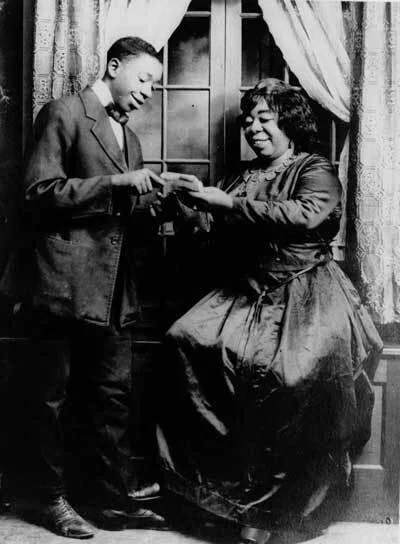Ma Rainey, August Wilson, Black Folk Narrative and The Blues
Published by: Lamont Jack Pearley
Ma Rainey, August Wilson, Black Folk Narrative and The Blues discusses Netflix Black Bottoms, Black Folk Narrative, and the Blues People.
Ma Rainey contributions confirm the importance of Jack Dappa Blues and African American folklorist newspaper, as we work to giving the proper information in cultural context of the blues people. Hearing black people say, everybody knows Bessie Smith, but nobody really knew Ma Rainey and then blaming a white educational structural system I don’t necessarily agree with 100%. We have to dig for and find our information. We also have to address those black group organizations that like the group Constantine put together, decided what was going to be filtered through to black people.
What Ma Rainey and other black entertainers in that space were doing at that time, was looked down upon by black folk who wanted to remove what they thought was the stain of being black.
We have to investigate this because if we don’t, then in turn we become unconsciously, the enthusiasts, purists, and academics that only give one version of the story. This is the purpose of our work, to discuss why we have to qualify the many versions of the story, why we have to investigate and add to the already shared story. This is why the African American Folklorist and Jack Dappa Blues Radio and the parent company Jack Dappa Blues Heritage Preservation Foundation are extremely important. We are putting in proper context, the story of the blues people, the expressions of the blues people, and the regions of the blues people as it relates to the Americas.
Couple of Points we discuss
First, August Wilson has to be one of the most brilliant and premier folk narrative ethnographers ever. Hands down the way he constructs black stories blues people’s stories based on blues
How capitalism viewed black people! Viola Davis’ monologue about how they just want her voice on record, then they don’t care…how many times have we seen this
The conflict of new vs old! Ma Rainey bringing in the turn of the century with black music of the 1800s, Levee wanted to produce the music of his generation. A constant occurrence in black cultural expression and vernacular.
We must remember, by this time, blues was frowned upon, the same way Hip Hop was. Now, it was always considered secular and devils music, not just to the clergy, but also to the educated and working class. This is why a lot of this information and history of the expression wasn’t always transmitted through black history, to a degree.



